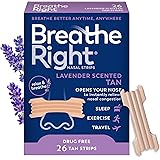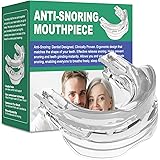The #1 Simple Snoring Hack: Turning Over for Better Sleep and Quieter Nights
If you are someone who snores, there is a remarkably simple snoring hack that shows a high probability of success, as highlighted in the video above. In fact, a 67% chance exists that merely adjusting your sleep position could significantly reduce snoring or even eliminate it entirely. This straightforward approach is often overlooked, yet it presents one of the easiest ways to improve sleep quality for both the snorer and their sleep partner.
Why a Simple Turn Can Help You Stop Snoring
The core of this effective strategy involves a shift from back sleeping to side sleeping. When an individual lies on their back, gravity tends to pull the tongue and soft palate towards the back of the throat. This action can narrow the airway, causing the vibrating sound known as snoring. However, when one is positioned on their side, the airway remains more open, allowing air to flow through more freely.
Imagine if a hose, partially kinked, had water struggling to pass through it. The water would make a gurgling sound. Similarly, a partially obstructed airway during sleep can lead to the noisy vibrations of snoring. A simple turn onto the side is often all that is needed to unkink that “hose” and allow for quieter breathing.
The video points out that this simple change boasts a 67% success rate for reducing or stopping snoring. This statistic is quite compelling, suggesting that for a significant majority of snorers, relief is potentially just a roll away. It is often the first, easiest, and most non-invasive solution recommended by sleep specialists for positional snoring.
Understanding Why Snoring Happens: A Basic Explanation
To fully appreciate why side sleeping is so effective, it helps to understand the basics of what causes snoring. Snoring is essentially the sound produced by the vibration of soft tissues in the throat as air passes through a narrowed airway during sleep. Several factors can contribute to this narrowing:
- Relaxed Throat Muscles: As one sleeps, the muscles in the throat relax. If these muscles relax too much, they can sag and partially block the airway.
- Tongue Position: For many, especially when sleeping on the back, the tongue falls backward and can obstruct the throat.
- Soft Palate and Uvula: An elongated uvula or a soft palate that is thicker or lower can vibrate more easily.
- Nasal Issues: Blocked nasal passages due to allergies, colds, or structural problems can force breathing through the mouth, increasing the likelihood of snoring.
- Alcohol and Sedatives: These substances relax the throat muscles even further, making snoring more probable and often louder.
- Weight: Excess weight, particularly around the neck, can contribute to narrowing the airway.
By simply adopting a side sleeping position, many of these issues, particularly those related to gravity’s pull on the tongue and soft palate, can be effectively mitigated. This is why it is considered such a powerful snoring hack.
Beyond Position: Other Easy Steps to Help Reduce Snoring
While changing your sleep position is a powerful initial step, other simple adjustments can further help to stop snoring. These methods, like side sleeping, are generally non-invasive and can be easily incorporated into daily routines:
Elevate Your Head
Even if sleeping on your side, a slightly elevated head can be beneficial. A few extra inches can help keep your airway open and prevent tissues from collapsing. This can be achieved with extra pillows or a wedge pillow designed for snoring.
Address Nasal Congestion
If breathing through the nose is difficult due to a cold, allergies, or chronic stuffiness, the mouth is often used, which can contribute to snoring. It is advised that any nasal congestion be managed before bedtime. This might involve using a saline nasal spray, a neti pot, or over-the-counter decongestants. Imagine trying to breathe freely through a stuffy nose; the struggle often leads to mouth breathing and subsequently, snoring.
Limit Alcohol and Sedatives Before Bed
Alcohol and certain sedatives are known to relax throat muscles more than usual. This increased relaxation makes the tissues more prone to collapsing and vibrating. It is often recommended that these substances be avoided for several hours before sleep.
Maintain a Healthy Weight
Extra weight, especially around the neck, can compress the internal diameter of the throat. Even a modest amount of weight loss has been shown to improve snoring in some individuals. This is a longer-term solution but a very effective one for overall health as well.
Stay Hydrated
Dehydration can cause secretions in your nose and soft palate to become stickier, potentially making snoring worse. Ensuring adequate fluid intake throughout the day can help keep these areas well-lubricated.
Consider Your Sleep Environment
A dry sleeping environment can irritate the throat and nasal passages. Using a humidifier, particularly in drier climates or during winter, can help keep the air moist and reduce irritation, potentially lessening snoring.
When to Seek Professional Advice About Snoring
While many cases of snoring are benign and can be managed with simple lifestyle changes and positional adjustments, it is important to know when snoring might be indicative of a more serious underlying condition. If snoring is accompanied by any of the following, a doctor’s consultation is strongly recommended:
- Pauses in breathing during sleep (witnessed by a partner)
- Gasping or choking during sleep
- Excessive daytime sleepiness, even after a full night’s rest
- Difficulty concentrating
- Morning headaches
- High blood pressure
These symptoms could be signs of obstructive sleep apnea (OSA), a condition where breathing repeatedly stops and starts during sleep. While the “turn over” snoring hack can be very effective for simple snoring, OSA requires professional medical evaluation and treatment.
For most, however, the journey to a quieter night’s sleep begins with that incredibly simple change: just turning over onto your side. It is hoped that these tips will help many to successfully stop snoring or significantly reduce it, leading to improved rest for everyone in the household.








